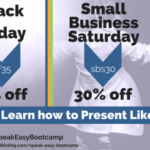“You should do pageants,” a family friend said. All I could think was, “Yeah, right. Be on stage all by myself. Absolutely not.”
Since the age of 12 seconds old, I have been performing. I’m not kidding. There is a picture of me being born, arm first. Some see jazz hands and others see my first pageant wave. Either way, it’s no surprise that I made my way to a stage at some point in my life.
The journey there, however, had some twists.
Performing on stage is something that just made sense to me. I loved being on my competition dance team, in theater productions, and singing Christmas carols into the video camera at the dining room table when I was four years old. But being onstage by myself was simply a dealbreaker. Shark in the deep end of a pool, unicorn at your birthday party nonsensical, dealbreaker. It just wasn’t going to happen.
Then one day, out of the blue, I decided I would do a pageant. To be honest, I am not sure what changed. Call it maturity, or call it jealousy of seeing other people having fun onstage. Much to my mother’s surprise, as the pageant was just a few weeks away, I was ready
As I got older, I learned more about this fear (glossophobia) and that I probably had a version of it. I had no problem being on stage with other people, but being alone is what made it a scary experience for me. You’ve probably heard the statistic that about 75% of people have a fear of public speaking. Turns out, that number is really around 40% , as it is considered a version of stage fright. I started to think about how that could have a tremendous impact on how professionals show up and engage in the office, so I did some digging.
Here are three things that stuck out to me:
- Fear of public speaking cuts wages by 10%.
- Fear of public speaking inhibits promotion to management by 15%.
- Research suggests that if a presenter does all the talking without giving the audience an opportunity to participate, then audience engagement drops by 14%.
Working with teams and their leaders
“The way you overcome shyness is to become so wrapped up in something that you forget to be afraid.” — Lady Bird Johnson
Here are three ways to reframe speaking in public:
It’s not about you
When you have a message to share, you are simply the medium through which it flows. Focus on your audience and how they can apply your knowledge to their lives, work and family.
Love your message
There is nothing more nerve-wracking than having to talk about something when you don’t have all the answers. If you are in charge of delivering a talk, learn as much as you can about it, but also have folks on standby to explain that complicated graph or vendor turnover rates, if possible.
Breathe
This seems like a no brainer, but as we sit at computers for longer and longer hours, our bodies adapt. Our lungs are shortened and as a result, we take shallower breaths. Not only can sitting up straight help with better breathing,
We know that engaged employees lead to higher retention and productivity. If you lead a team where a member(s) has to give talks or present information, what conversations have you had around this very popular fear?




